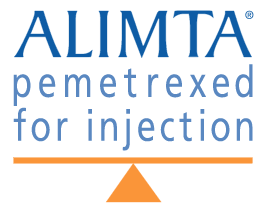
Indianapolis, Indiana – Patent lawyers for Plaintiffs Eli Lilly and Company of Indianapolis, Indiana, its subsidiary Eli Lilly Export S.A. of Geneva, Switzerland and Acrux DDS Pty Ltd of West Melbourne, Australia filed a lawsuit alleging patent infringement. This federal lawsuit, commenced in the Southern District of Indiana, lists two Defendants, Cipla Limited of Mumbai, India and its wholly owned subsidiary Cipla USA, Inc. of Miami, Florida.
The parties in this litigation are engaged in the development and sale of pharmaceuticals. At issue is Plaintiffs’ transdermal testosterone solution, which is marketed under the trade name “Axiron®.” Lilly holds New Drug Application No. 022504 for this drug, which was approved by the U.S. Food and Drug Administration (“FDA”).
Defendants submitted an Abbreviated New Drug Application (“ANDA”) to the FDA seeking approval to market a generic version of Lilly’s Axiron product. In this ANDA, Defendants certified to the FDA that they believed that the patents-in-suit were invalid, unenforceable and/or would not be infringed by the commercial manufacture, use or sale of the generic version of Axiron described in the ANDA.
According to Plaintiffs, the filing of this ANDA by Defendants constitutes patent infringement. Plaintiffs also contend that other threatened activities, such as commercial manufacture, importation and sale of a generic version of Axiron, would also infringe Plaintiffs’ patents.
Plaintiffs list three disputed patents in this lawsuit: U.S. Patent Nos. 8,435,944; 8,993,520 and 9,180,194. These patents have been issued by the U.S. Patent and Trademark Office. Indiana attorneys for Plaintiffs ask the court for relief with respect to the following claims of patent infringement:
• Count I: Direct Infringement of U.S. Patent No. 8,435,944
• Count II: Inducement To Infringe U.S. Patent No. 8,435,944
• Count III: Contributory Infringement of U.S. Patent No. 8,435,944
• Count IV: Direct Infringement of U.S. Patent No. 8,993,520
• Count V: Inducement To Infringe U.S. Patent No. 8,993,520
• Count VI: Contributory Infringement of U.S. Patent No. 8,993,520
• Count IV [sic]: Direct Infringement of U.S. Patent No. 9,180,194
• Count V [sic]: Inducement To Infringe U.S. Patent No. 9,180,194
• Count VI [sic]: Contributory Infringement of U.S. Patent No. 9,180,194
The complaint also lists three counts seeking declaratory judgment.
Plaintiffs aver that this case is “exceptional” and ask the court for an award of their costs, including attorneys’ fees, pursuant to 35 U.S.C. §§ 285 and 271(e)(4).
Continue reading
 Indianapolis, Indiana – Eli Lilly and Company of Indianapolis, Indiana filed a lawsuit in the Southern District of Indiana alleging patent infringement.
Indianapolis, Indiana – Eli Lilly and Company of Indianapolis, Indiana filed a lawsuit in the Southern District of Indiana alleging patent infringement. Indiana Intellectual Property Law News
Indiana Intellectual Property Law News









